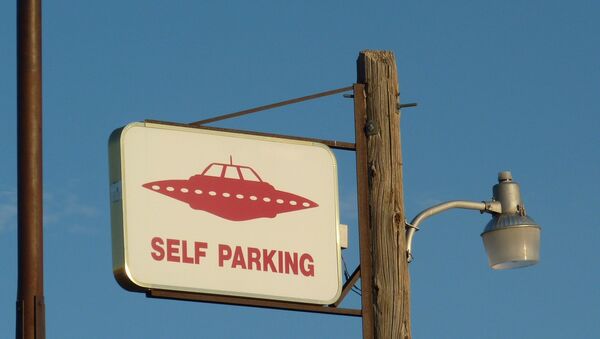"We know that this program existed, it still exists and it investigated military cases and very significant cases of pilot encounters with these objects," according to one of the authors who broke the story late last year.
In December, the New York Times reported that the guided missile cruiser USS Princeton had tracked enigmatic aircraft that "appeared suddenly at 80,000 feet and then hurtled toward the sea, eventually stopping at 20,000 feet and hovering." After the maneuver the objects would shoot directly up or fall out of radar range, according to the report.
Since the December 16 report, Turkey's Operation Olive Branch, the Parkland, Florida, mass shooting, Michael Wolff's tell-all book on the Trump White House and Special Counsel Robert Mueller's probe have attracted a significant amount of attention. However, a verifiable report on the US government spending $22 million for investigating UFOs from 2007 through 2011 is not exactly as trivial as the weekly weather forecast. Indeed, for some the report is still earth-shaking, WTOP reports.
"It's completely rational to be interested and to try and figure out what's going on with this," Leslie Kean told WTOP Monday. Kean was a co-author of the December report in the New York Times.
"The researchers in this area have always speculated and wondered what is going on behind the scenes," Kean began. "Is there a government investigation into this? And now we know the answer is yes. It just established credibility for the topic for people to know that our government takes it seriously enough to have to put financial resources into it."
While it's not clear how the government is financing the programs without directly funding them, one possibility is for military and intelligence agencies to dig into their black ops budgets. For fiscal year 2018, the military and intel communities have $78 billion for running off-the-books operations. The Trump administration has requested increasing the black ops budget to $81 billion.
While the stigma around UFO research can make academics and researchers "feel like they're going to be laughed at," an attitude that has tainted institutions' perceptions of further research, Kean expressed hopes that things were changing.
Perhaps one way to change perceptions of UFO research is to introduce the vital clarification that UFOs should not be misconstrued with aliens. "You can't take the leap of looking at something unexplained and then assume that it's alien," Keane noted.





